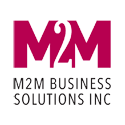“The future influences the present just as much as the past” – Friedrich Nietzsche
There is no doubt that the business landscape has been changing constantly. However, it is the speed of this change that is causing disruption in work environments.
If past and present are any signs of the future, the transformation will continue but at a more rapid pace.
While modern technologies would continue to be at the core of disruptions and our reliance on them will only increase with time, it is essential to realize the role people will play in the process.
Plan => ‘People’ => Process
People are the very reason why businesses exist. While it might be just possible for a business to survive without technology, it certainly cannot without people.
| Our 3Ps methodology of Plan => People => Process is built with the firm belief that it is people that execute plans by aligning processes necessary for the growth of an organization. |
Future Ready Team = Future Proof Business
While the leadership challenges are plenty, empowering your team for the future is a step in the right direction.
According to the Future Jobs Report 2020 by the World Economic Forum, at least 50% of the employees will need reskilling by 2025 as the adoption of technology increases. It also estimates that 85 million jobs will be displaced, but 97 million more jobs will emerge in the process.
Now is the right time to start preparing your team and future-proofing your business in the process. Here are a few ways in which leaders can prepare their teams for the future-
1. Constant Reskilling and Upskilling
A common solution that businesses often rely on when their current set of employees cannot keep up with the changes is to lay them off and hire new talent. While this might be the only solution at times, it often alters the core of a company while also impacting the employees’ emotional and mental well-being.
The majority of the organizations still lack an effective reskilling culture that could help the teams acquire new skills. When people get set in their ways by doing the same tasks every day, it is natural for them to struggle when change becomes inevitable. The COVID-19 pandemic that forced most employees to work from home is an excellent example of this challenging dynamic.
| Businesses can implement skill-building programs, use e-learning, and consider external training to reskill and upskill the employees. |
2. Improve Critical Thinking Skills
According to SHRM’s State of Workplace Report, critical thinking is the most in-demand skill for job candidates. The skill also stands at the top spot in the aforementioned World Economic Forum report and has retained the spot since 2016.
As the business landscape continues to be more complex and demanding, the need for informed and improved decision-making is at an all-time high. As critical thinking plays a vital role in the decision-making process, it is obvious for businesses to look for candidates equipped with the skill.
However, there are many different ways in which leaders can help their teams improve their critical thinking skills.
| Building a culture of learning, creating internal forums, and promoting top performers are some of the ways that we at M2M have seen delivering the best results. |
3. Work on Multigenerational Technology Adoption
The current workforce is multigenerational, comprising Baby Boomers, Gen X, Millenials, and Gen Z. Each of these four generations can have a different attitude towards technology. For instance, someone in their 50-60s might have not even used a computer for most of their working lives. On the other hand, someone in their early 20s might have been using a smartphone since school.
This often causes a significant gap in the workforce with regard to familiarity with modern technologies. But as mass technology adoption can no longer be delayed, leaders should work towards creating pervasive adoption.
| Integration adoption into the technical workflows, focusing on the experience offered by the technology, setting realistic expectations, and taking employee opinion into account are some ways to boost adoption. |
4. Make the Teams More Agile
Apart from being a professional and personal attribute, agility is also the organization’s overall capability to pivot, absorb, and overcome changes without letting them affect business processes. As the VUCA world continues with its volatility, uncertainty, complexity, and ambiguity, making the employees more agile is a smart way to prepare them for the future.
However, also be reminded that the AQ (Agility Quotient) of an organization depends on a combination of mental intelligence (IQ), emotional intelligence (EQ), and spiritual intelligence (SQ) of the team members. Each of them has a significant impact on the overall performance and adaptability of an individual.
| Read this article on LinkedIn, where I talk about how building 3Qs of the Agility Quotient could be the most effective solution for leaders wanting to make their team members and overall organizations more agile. |
5. Upgrade Workplace Communication
As per a recent survey of 400 companies by SHRM, businesses lose as much as $62.4 million every year due to inadequate communication. With technologies like AI and machine learning transforming business operations and the introduction of WFH and hybrid work models, communication becomes even more important for promoting collaboration, adaptability, and strengthening relationships.
At every level in an organization, communication functions as the fire which fuels the workplace. Active listening, awareness of different communication styles, and persuasion are some skills that could improve the overall communication of an organization.
| It is also very critical for leaders to have open lines of communication as it helps build trust, boost morale, and improve productivity. |
Team members should feel that the voice is heard, which converts into them feeling better towards themselves, their work, and the organization they are employed at.
Building a Future-Ready Organization
While the future is always uncertain, the past and the present can indicate the imminent. As a leader, the only thing you can do is to prepare yourself and your team for the future and the uncertainties it will bring. Professional assistance is now available to guide you through the process.
With our Workplace Essential Skills (WES) program, we’ve helped businesses across industries build a culture of teamwork where continuous improvements and retention are encouraged. Book an information session to know more about this program and how it can benefit your team and organization.


